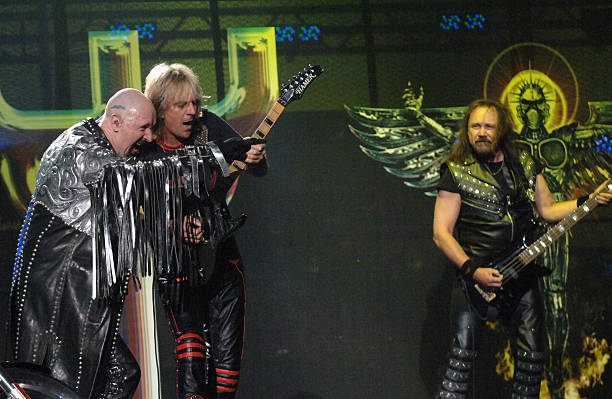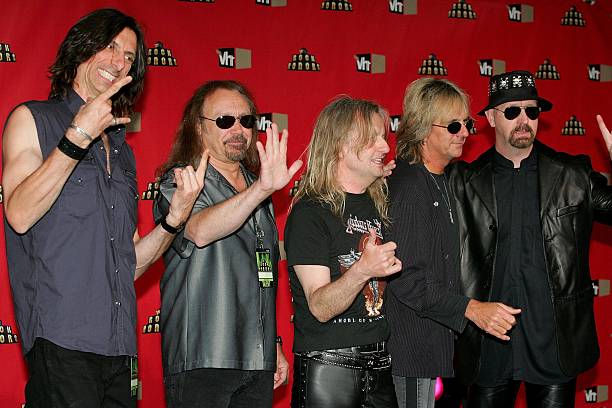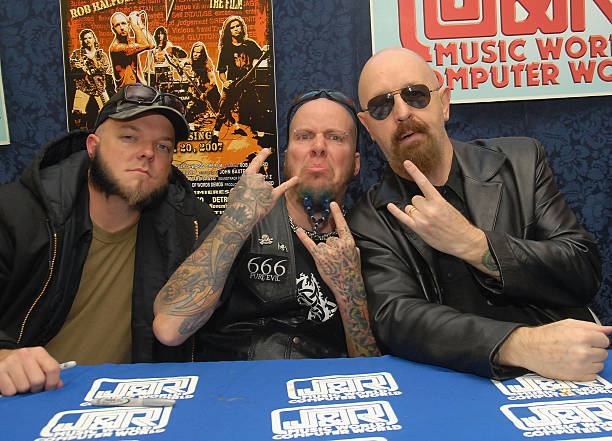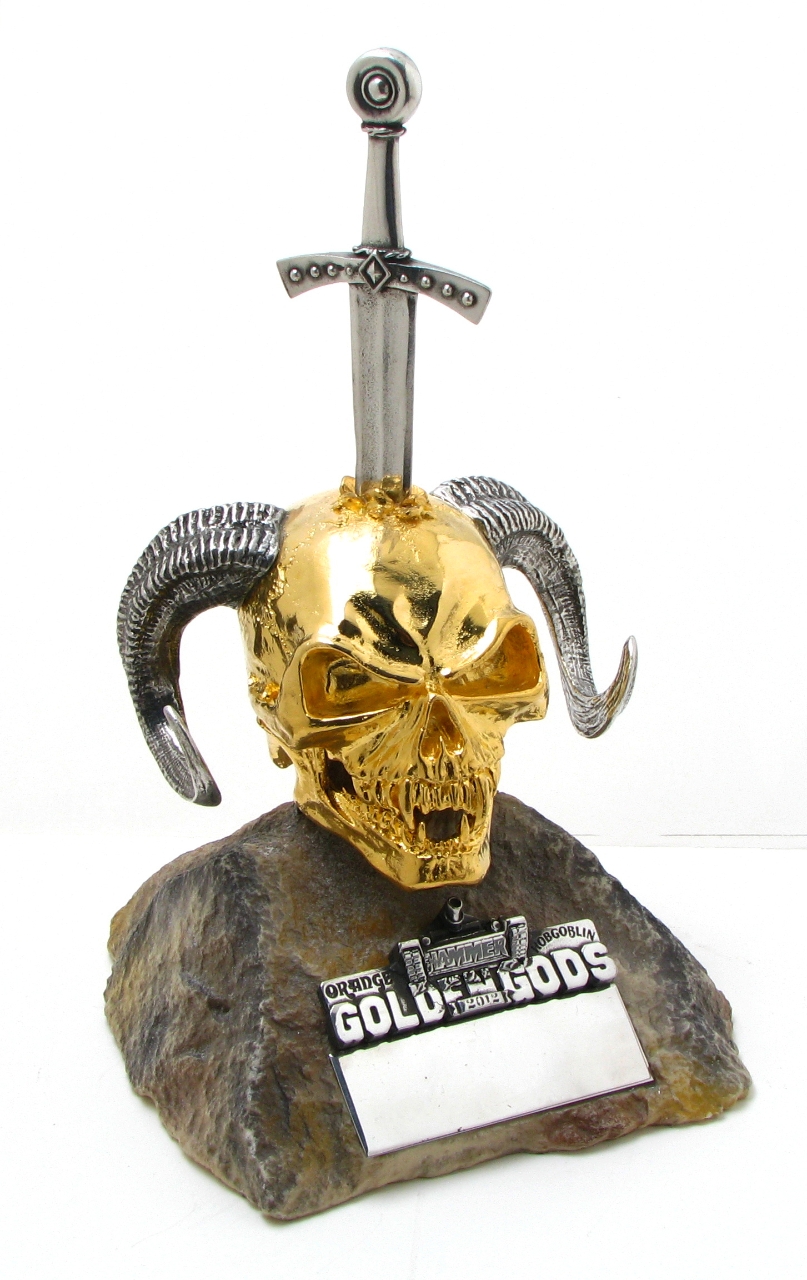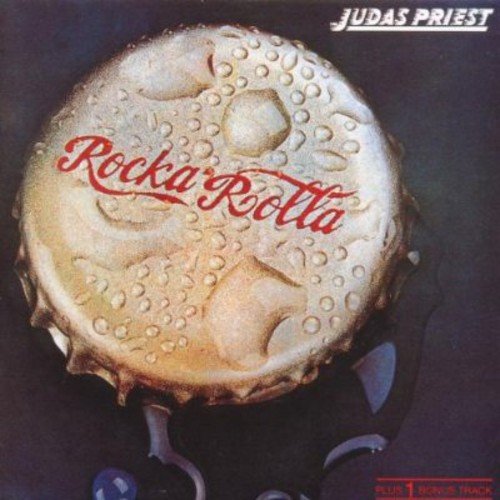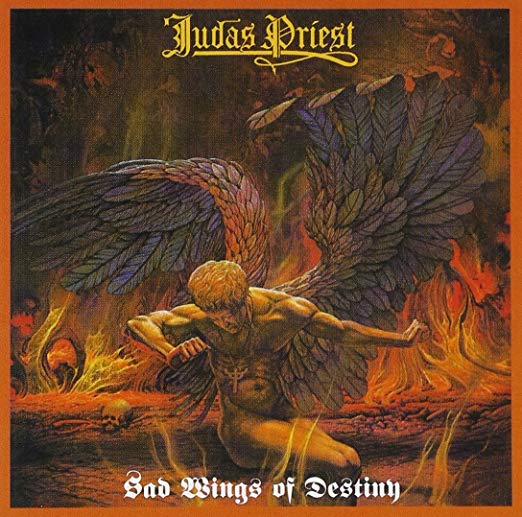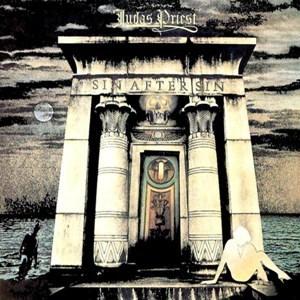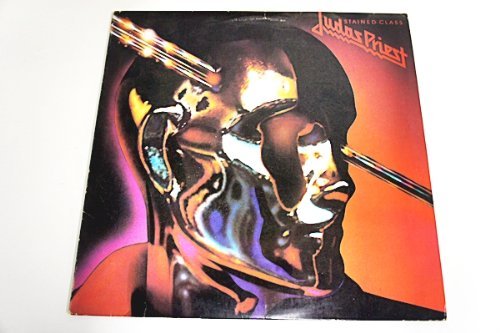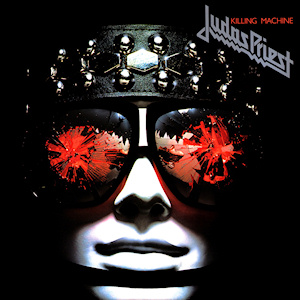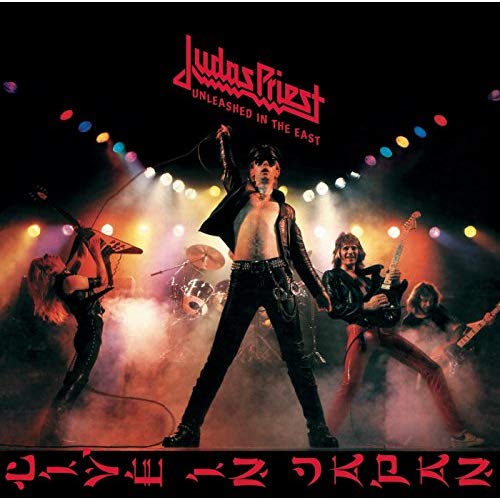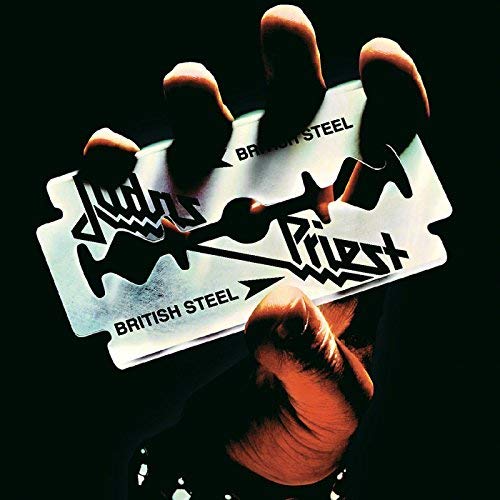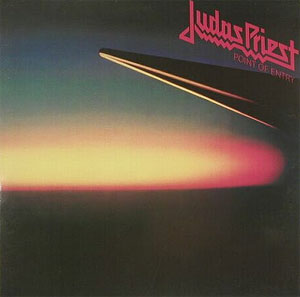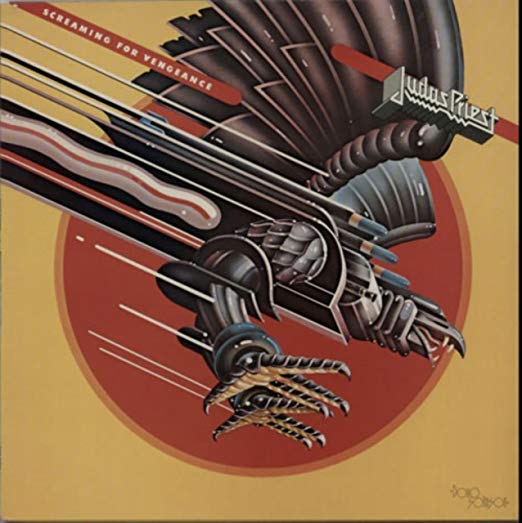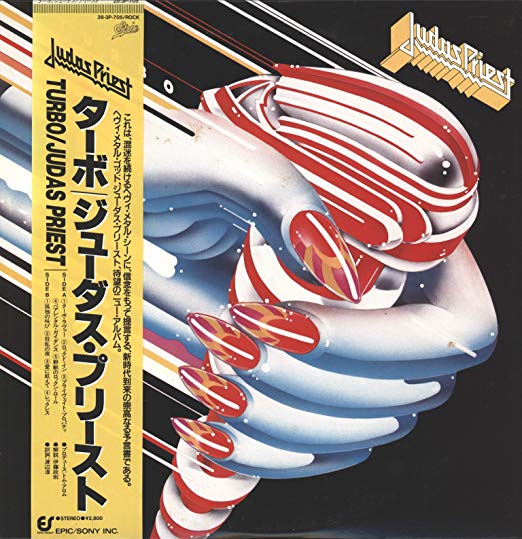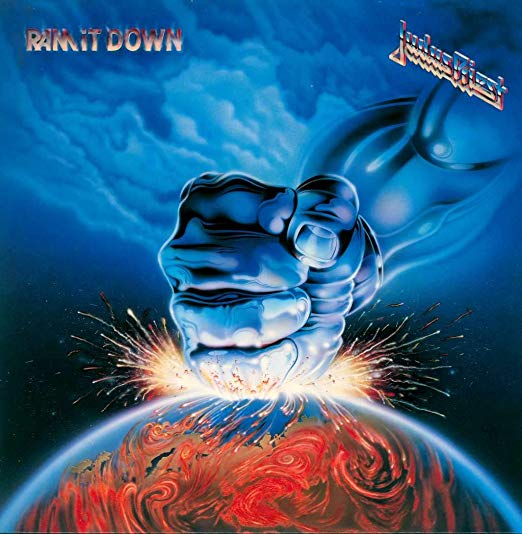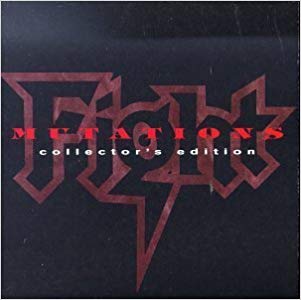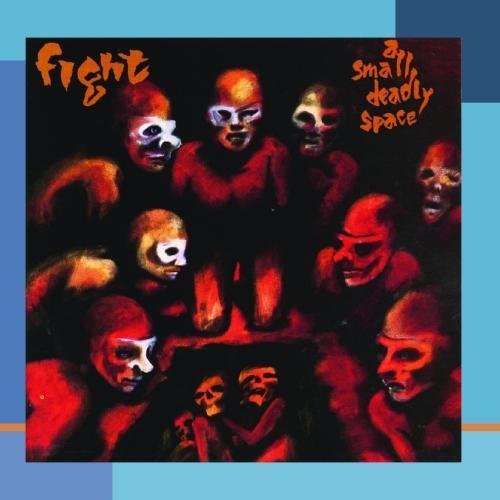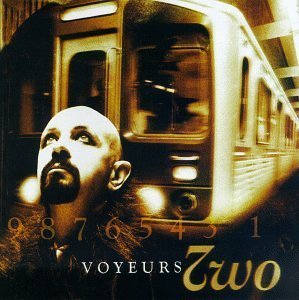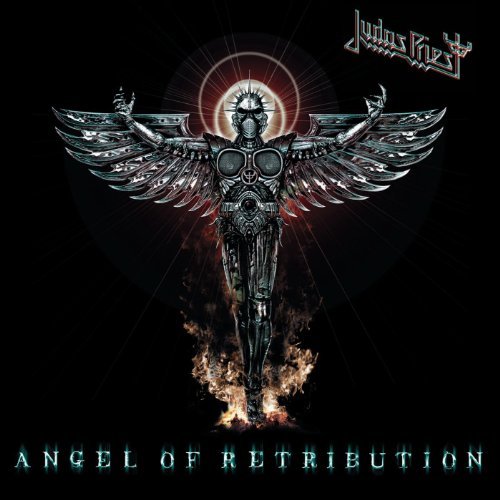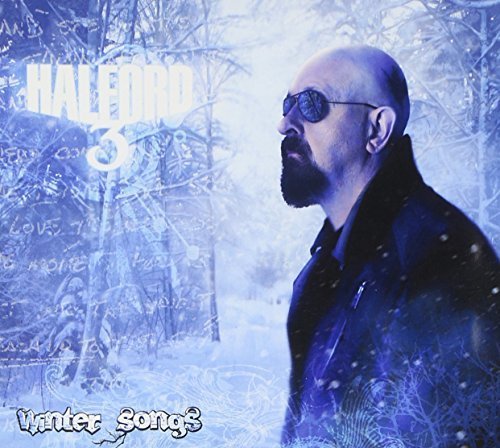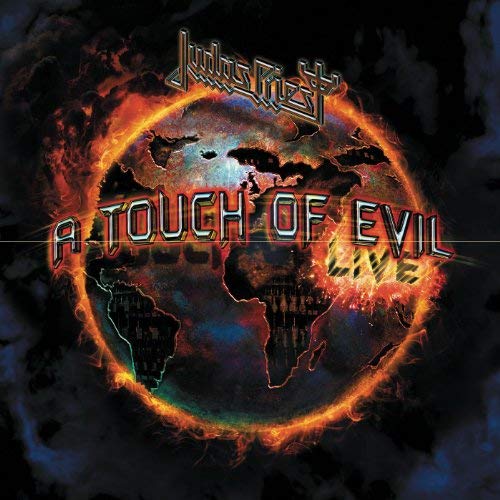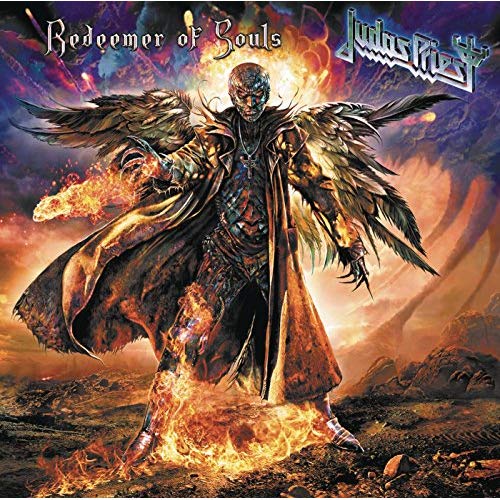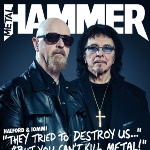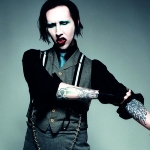Robert John Arthur Halford is an English singer and songwriter, who is best known as the lead vocalist for the Grammy Award-winning heavy metal band Judas Priest and famed for his powerful wide-ranging voice and his now-trademark leather-and-studs image, both of which became revolutionary in heavy metal.
Background
Halford was born in Sutton Coldfield, but raised on the Beechdale in Walsall, a town to the northwest of Birmingham in England's West Midlands. His early influences included soul screamers, such as Little Richard, Janis Joplin and Robert Plant.
Education
Robert attended Hatherton Lane Infants School from 1956, moving to the Junior School when it opened in 1960. His childhood friend Tony Cooley recalls that at junior school Rob, who later became world-famous for his extraordinarily powerful and wide-ranging voice, was a good singer. In 1962, Rob and Tony went to Richard C. Thomas Secondary Modern School in Field Road, Bloxwich. Far from today’s heavy-metal hard man image, young Rob was a gentle soul given to artistic eccentricity. His singing voice meant he featured in many school events and plays,
Career
Halford began singing as a teenager, fronting a local rock band, Hiroshima, and working as a theatrical lighting engineer. But a freak occurrence landed Halford the frontman spot with an up-and-coming rock band out of Birmingham, Judas Priest. In 1973, Halford's sister was dating Priest bassist Ian Hill, and one day a few members were over at the Halford's house, when they overheard Halford singing along to the radio. Priest had just lost a singer, so a tryout was set up, and Halford was promptly accepted into Priest, joining Hill, the twin guitar team of K.K. Downing and Glenn Tipton, and a revolving door of drummers.
In August 1974, the band debuted with the single "Rocka Rolla", before releasing an album of the same name a month later. The next albums were Sad Wings of Destiny (1976); 1977's Sin After Sin; and 1978's Stained Class and Killing Machine (released in America as Hell Bent for Leather). 1979 brought their first live recording with Unleashed in the East. In 1980, the band released British Steel, then Point of Entry in 1981, featuring the song "Heading Out to the Highway".
The 1982 album Screaming for Vengeance had a song, "You've Got Another Thing Comin'", which garnered strong US radio airplay, and the popular follow-up Defenders of the Faith was released in 1984. Turbo was released in April 1986. In May 1988, Ram It Down was released. In September 1990, the Painkiller album dropped the 1980s-style synthesizers for almost all of the songs. Along with a change in musical style, the band's look changed as well. Halford emerged with all-new tattoos, including a bent Judas Priest cross on his right arm and ring around his other, as well as a few on his shoulders. He also began shaving his head.
During the tour for Painkiller in August 1991 at a show in Toronto, Halford rode onstage on a large Harley-Davidson motorcycle, dressed in motorcycle leathers, as part of the show. He collided with a half-raised drum riser and fell off the motorcycle, breaking his nose. After regaining consciousness, Halford returned and performed the whole concert. In the band's Behind the Music episode, he named the accident as one of the events that caused the rift between him and the rest of the band that would eventually force them apart. After spending nearly 20 years with Judas Priest, Halford announced to the band on 4 July 1991 that he was leaving, and he also sued their label, Sony, for restrictive practices. Halford would leave the band in May 1992.
Halford first formed the band Fight with Judas Priest drummer Scott Travis, bassist Jack "Jay Jay" Brown and guitarists Brian Tilse and Russ Parrish, recording two albums between 1993 and 1995: War of Words (1993) and, after Parish's departure and his replacement by Mark Chausee, A Small Deadly Space (1995). While the first one was a straightforward tough and solid metal record, the second record had a grungier sound, making it less appealing to fans who had developed a taste for his debut album.
Between the albums, Fight released an EP, Mutations, featuring War of Words studio versions, live cuts and alternate mixes. Immediately before this, Halford had recorded a track called "Light Comes Out of Black" for the 1992 movie Buffy the Vampire Slayer. The song featured music provided by Pantera, although their contribution is uncredited. After Fight, he collaborated with guitarist John Lowery in an industrial-influenced project called 2wo which was executively produced by Trent Reznor and released on his Nothing Records label.
Halford returned to his metal roots in 2000 with his band Halford and the widely acclaimed album Resurrection (2000), produced by Roy Z. He joined the Metal 2000 tour with Iron Maiden and Queensrÿche to support the album. A live album in 2001 was followed up by Crucible (2002).
Halford's reunion with Judas Priest had been speculated about when he was no longer in the line-up, at least since the release of the Resurrection album, which some critics claimed sounded more like Judas Priest than the band's previous album Jugulator (1997). Halford initially ruled it out, then reconsidered, stating in 2002 that "Gut instinct tells me that at some point it will happen".
In July 2003, Halford returned to his former band, and they released Angel of Retribution in 2005. The world tour that accompanied the release marked the band's 30th anniversary. In 2008, Halford recorded Nostradamus with Judas Priest, and appeared with the band on the Metal Masters Tour. In 2011, Judas Priest embarked upon what was billed as their final world tour as a group, titled the "Epitaph" tour. Subsequent to the tour's announcement, Halford stated that he would continue to move forward with his solo band.
Despite the "final tour" announcement in 2011, Halford and Judas Priest (minus K. K. Downing, who left the group prior to the Epitaph tour) recorded another album, Redeemer of Souls, which was released in 2014, the album supported by a concert tour. In 2017, Judas Priest began to work on another studio album with Halford. The album, Firepower, was released March 9, 2018.
Halford also has performed as the vocalist for Black Sabbath at three shows. He replaced Ronnie James Dio for two nights in November 1992, when Dio elected not to open a show for Ozzy Osbourne. Halford also filled in for Osbourne in Black Sabbath on 26 August 2004 (one day after Halford's 53rd birthday) at an Ozzfest show in Camden, New Jersey, since Osbourne could not perform due to bronchitis.
In early 2008, Halford expressed a desire in making a black metal album, citing encouragement from former Emperor frontman Ihsahn. He said he'd "love to but it's all about finding the time". He provides his voice to the video game Brütal Legend, released in October 2009, where he voices General Lionwhyte, as well as the leader of the Fire Barons, he heavily influenced the appearance of the latter.
Halford developed the clothing line Metal God Apparel with plans to develop retail sales through 2010.
Religion
He was born and raised in a Christian home, and states the following about his upbringing, "On a religious, more spiritual foundation, that really, for me, has become more important since I became clean and sober on 6 January 1986. That was 25 years ago and I think that’s probably more important to me now, on a daily basis."
Politics
Asked if he has been tempted to move back to England in the year since Donald Trump became president, Halford — who has lived in Phoenix since 1985 and also owns a home in San Diego — said: "Not in the least, no. Running away from something doesn't do anything, except put distance. I love America dearly. What's really important is the common good and unity of the people of this country, and making sure that everybody gets a fair shake, and that to me doesn't appear to be the case right now. Teachers should not need to have to buy books for the kids, or pencils and pens. That's absurd. This is America. I think evenness and equality and a level playing field from any administration is an absolute responsibility. End of speech."
Views
Halford speaks negatively about the discrimination that the LGBT community still faces despite the broad social acceptance of homosexuality and the legality of same-sex marriage in some parts of the world. When asked about his thoughts on if his position as the frontman of Judas Priest has opened the door in positivity for some, he said, "That happened to me… I'll try and condense this as quickly as I can… I was away from Priest at the time, I was fronting a band called 2wo with John 5, who's now with Rob Zombie. And I was doing an interview with MTV and talking about music and blah blah blah, and very off the cuff, I said, 'Speaking as a gay man in metal…', blah blah blah. Well, the guy dropped his clip, the producer, because it was big news at the time. In reflection, would I have said that while was in Priest? The thing about gay people is that until we come out of the closet, we're always protecting other people: 'I can't do this, because it's gonna hurt so-and-so. We're trying to live the lives of other people, and that's the worst thing you can do. You've gotta learn to love yourself and live your own life. Then you can go out in the world and try and figure everything else out." He recalled that shortly after the interview, he began to fear negative reactions but was quickly inundated with messages of support from his colleagues and fans.
Personality
In 1998, Halford publicly revealed his homosexuality. He broke down in tears saying, "It's a wonderful moment when you walk out of the closet. Now I've done that and I've freed myself. It's a great feeling for me to finally let go and make this statement - especially to The Advocate, because this magazine has brought me so much comfort over the years. Obviously this is just a wonderful day for me."
Halford describes himself as "the stately homo of heavy metal". He says that his announcement was "the greatest thing I could have done for myself." He also explains that he didn't announce it sooner due to the fear that he was going to cause harm to himself.
In Behind the Music Halford stated that hiding his sexuality during Priest's career caused him a lot of depression and isolation which led to his alcohol and drug abuse. During the making of Judas Priest's Turbo album in 1986, Halford struggled with increasing substance abuse and violent feuds with his romantic partner. After the latter committed suicide in front of Halford, he resolved to get clean. He has been clean and sober since going to rehab following a painkiller overdose in 1986, stating that, before that point, he heavily abused drugs and alcohol. He made an energetic recovery and his live performances during the subsequent Turbo tour were described as some of his strongest ever.
In a 2015 interview with Western Canada's Rock N' Roll Breakfast Show, Halford gave a more detailed explanation looking back on the day he quit drugs and alcohol and how it affected his live performances and emotional well being since then, "It's a trail of sobriety that I really know for a fact has helped me in my career and in my life as a musician and as a person. I'd like to feel that I'm better in both worlds in that respect. I think I've improved in a lot of ways because of being able to stay clean and sober. But, you know, it is remarkable. And you can't do it by yourself — you have to use the tools that you're given by other people who have got your back and look out for you. And, again, it comes back, a lot of it, to my fans."
Physical Characteristics:
Halford possesses a powerful operatic voice with a large vocal range which is marked by his full voiced, high-pitched screams and strong vibrato. However, with age, his lower range has matured and become more powerful.
In addition to the sound, Judas Priest is also known for being revolutionary in heavy metal fashion. In the band's early years, they dressed in hippie-style 1970s outfits, but as the decade drew to a close, the rise of punk rock made this look outdated, so the band began wearing simplified wardrobes on their 1978 tour. For the 1979 tour, Halford adopted his now-trademark leather-and-studs look, inspired by punk fashion and leather culture. The rest of the band adopted a similar style which became prominent at the time of their 1978 release, Killing Machine. This style would go on to be adopted by many heavy metal bands in the early 1980s, especially those of the NWOBHM and early Black Metal movements. To this day, it is not uncommon to find metal artists and fans sporting such a look at concerts.
Quotes from others about the person
AllMusic says of Halford: "There have been few vocalists in the history of heavy metal whose singing style has been as influential and instantly recognizable... able to effortlessly alternate between a throaty growl and an ear-splitting falsetto".






